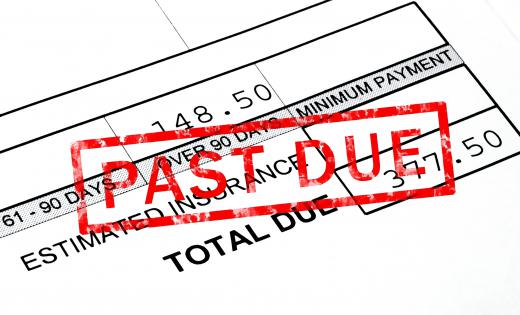At WiseGEEK, we're committed to delivering accurate, trustworthy information. Our expert-authored content is rigorously fact-checked and sourced from credible authorities. Discover how we uphold the highest standards in providing you with reliable knowledge.
How do Tax Liens Work?
A tax lien is placed on an individual or business by the Internal Revenue Service (IRS) when past-due taxes are owed but have not been paid. The IRS places a lien on the property, until all taxes, fees, and/or penalties have been paid.
Tax liens can be settled in a few different ways. The most obvious is to pay the bill. Tax liens can also be removed when some kind of repayment agreement has been reached between the IRS and the debtor. Usually, the IRS will go into a repayment agreement where installments of the debt are paid each month until the full amount has been repaid. This is usually how income tax payments are handled, but they may also include some penalty fees.

Tax liens can have a strong negative effect on the purchase or sale of the associated real estate. In order to facilitate the transaction, the IRS will sometimes offer lien subordination. In this instance, the IRS withdraws the notice of a tax lien. By doing so, they take care of themselves and the tax payer. The tax payer can then secure a loan. The IRS subsequently has access to any appreciation on the property, even though they give up their rights to be the first priority for repayment of the debt.
Sometimes tax liens are prematurely issued or do not follow proper IRS administrative rules. In these cases, the lien must by law be lifted. The aid of a tax advisor or lawyer may need to be employed to determine and settle such matters.
AS FEATURED ON:
AS FEATURED ON:











Discussion Comments
My experience has been that the IRS *never* follows "administrative rules".
"The aid of a tax advisor or lawyer may need to be employed to determine and settle such matters."
Either that or, you can get some tax lien removal tools available on the internet and make a competent attempt at doing it yourself by writing some well written letters and sending them to the right position in the IRS.
Post your comments